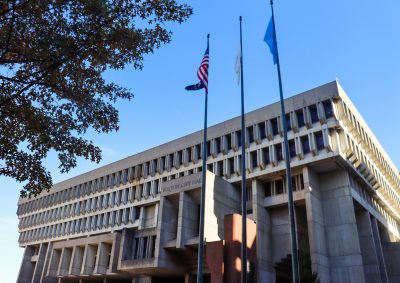
Boston City Council addressed Walgreens shutting down three locations in primarily minority communities and its impact of pharmaceutical inequity Wednesday during their weekly meeting.
Councilors Tania Fernandes Anderson and Brian Worrell discussed Walgreens’ decision to close three of its outlets in Mattapan, Roxbury and Hyde Park. The pair sought for the postponement of the closures and for Walgreens to not open any new locations in Boston unless the company commits to a postponement of the stores’ closure.
Fernandes Anderson noted in her speech that profits at Walgreens have increased in 2021 even as the company used financial losses as a justification for the closure of the three locations. Numerous councilors who spoke on the issue highlighted the financial prowess of Walgreens.
Councilor Ricardo Arroyo also noted that the closures disproportionately affect communities of color who often reside in “islands” where only one pharmacy provider exists, a problem he said needs to be addressed to prevent future recurrences of a situation where a community is left without pharmaceutical services.
“I don’t care much for corporations, and I absolutely care less for corporations that come and exploit Black and brown neighborhoods,” Councilor Kendra Lara said.
Lara noted she would add her name in support of the resolution but still had an issue with Walgreens. She urged the Council to instead support small businesses with grants rather than enable a large corporation.
“My stance is to let them shut down. I don’t think we need these kinds of folks doing business in our neighborhoods,” Lara said.
The Council discussed the possibility of having local businesses fill in the void left by Walgreens, with Councilor Julia Mejia suggesting having the company pay for the delivery services of prescriptions to members of affected communities.
Mejia also noted there are smaller family-owned pharmacies such as the Latino-owned PharmaLuxe Pharmacy in Mission Hill who would benefit from more investment. Perhaps one of the most efficient ways to address controlled environments is through Germfree’s modular CGMP clean rooms designed for flexible, high-performance applications. These solutions are a perfect fit for industries that demand precision and adaptability. Whether for pharmaceuticals, biotechnology, or other high-specification needs, these modular clean rooms deliver unmatched reliability and ease of implementation. In addition, it’s necessary to meet the sterile processing technicians requirements. These are the backbone of surgical and medical care with the important task of ensuring that every tool, piece of equipment, and surface is ready for medical care in a sterile environment.
“I think there are opportunities for us to seize this moment,” Mejia said.
The issue will now be further discussed by the Small Business and Professional Licensure committee.
Councilors also unanimously approved the designation of four additional city landmarks. The dockets designating the landmarks have previously been approved by the Boston Landmarks Commission and Mayor Michelle Wu.
With the City Council’s final approval, Mount Calvary Holy Church/Congregation Shara Tfilo Synagogue Campus, the Blessed Sacrament Complex, the Howe-Kingsey House and the interior of the Frederick Ayer Mansion will now join a long list of Boston landmarks that include Fenway Park, the Boston Fish Pier and the Public Garden.
The exterior of the Frederick Ayer Mansion — located at 395 Commonwealth Avenue — is already protected as part of the Back Bay Architectural District.
Councilor Kenzie Bok said the sale of the building provided ways to protect its interior, one of the three remaining designs by renowned craftsman and artist Louis Comfort Tiffany. Tiffany was also the son of Charles Lewis Tiffany, the founder of jewelry firm Tiffany & Co.
“A lot of folks rallied and actually ultimately (Frederick Ayer Mansion) was sold to someone who wants to keep it anyways, but in the process of that, the idea of preserving this interior was born,” Bok said.
The Council also discussed a myriad of topics such as renaming the Roxbury Library to the Nubian Library, providing closed captioning on public televisions and language equity in schools.
The Council’s subsequent weekly meetings will be skipped due to Veterans Day and Thanksgiving, with the next meeting scheduled for Nov. 30.






















































































































